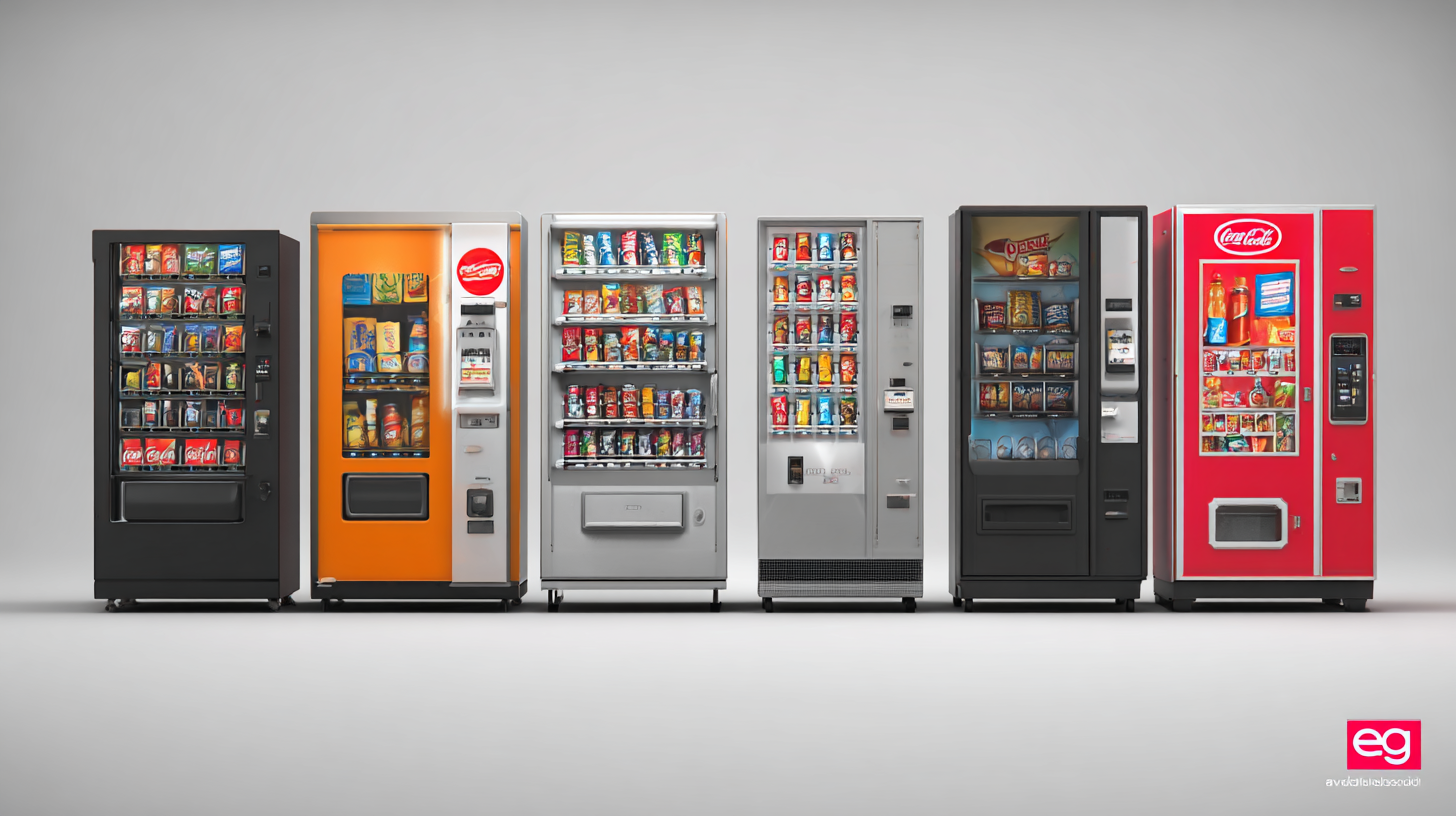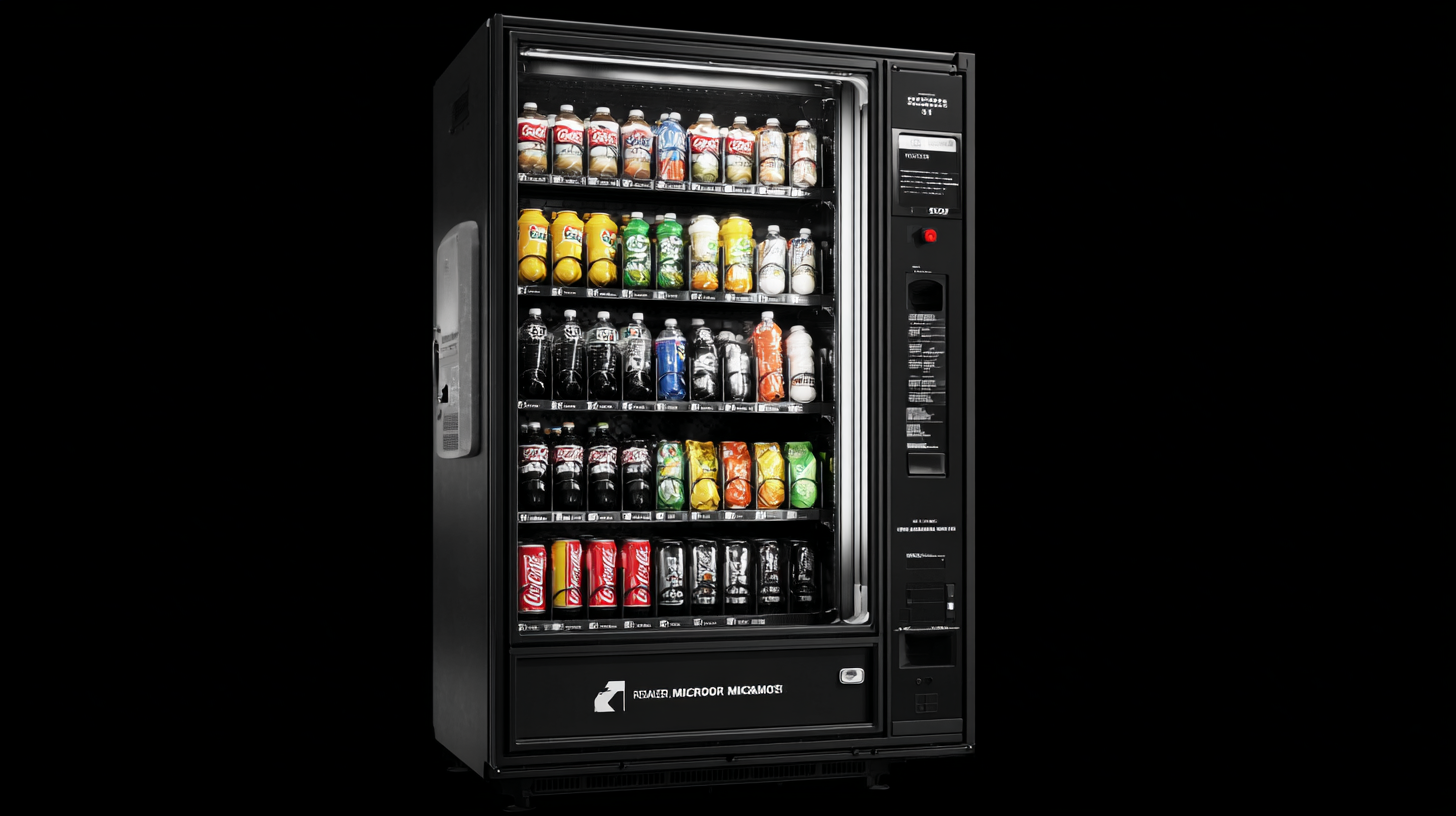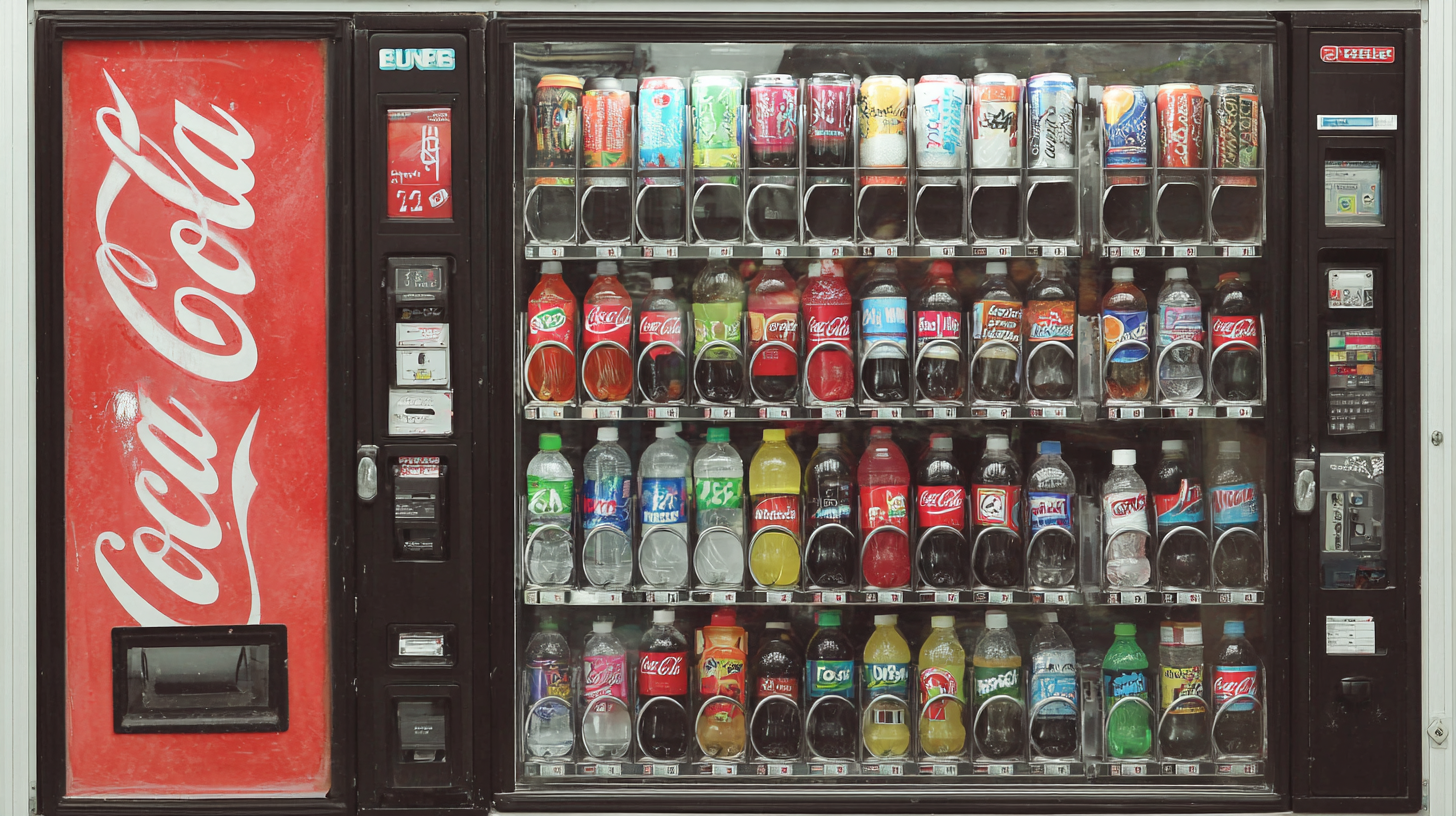The popularity of free vending machines has surged in recent years, as they offer businesses an effective way to enhance employee satisfaction and customer experience without incurring upfront costs. According to a report from IBISWorld, the vending machine industry is projected to reach a valuation of $25 billion by 2025, driven by innovations in technology and shifts in consumer preferences towards healthier snack options.

Selecting the best free vending machine solutions involves understanding industry standards that ensure reliability, maintenance, and product variety. With a myriad of manufacturers claiming to provide the best solutions, navigating this competitive landscape can be challenging.
This blog aims to explore the key factors to consider when choosing a quality manufacturer, enabling businesses to make informed decisions that align with their operational needs and customer expectations.
 When exploring free vending machine solutions, it is essential to define key features and specifications that set the best options apart. According to a report by the National Automatic Merchandising Association (NAMA), over 40% of consumers express preferences for vending machines that offer healthier snack and beverage options. Consequently, selecting a solution that incorporates diverse product offerings, including organic and low-calorie items, is crucial for catering to a modern audience that prioritizes health.
When exploring free vending machine solutions, it is essential to define key features and specifications that set the best options apart. According to a report by the National Automatic Merchandising Association (NAMA), over 40% of consumers express preferences for vending machines that offer healthier snack and beverage options. Consequently, selecting a solution that incorporates diverse product offerings, including organic and low-calorie items, is crucial for catering to a modern audience that prioritizes health.
Additionally, technological integration is a defining feature of today's vending machines. A study by IBISWorld indicates that vending machine technology is projected to grow by 8.7% annually, emphasizing the importance of cashless payment systems and app-based ordering. These innovations not only streamline transactions but also enhance user experience, aligning with the growing trend of contactless solutions within the retail space. Therefore, when evaluating free vending machine solutions, ensure that the selected units come equipped with the latest technologies that enhance convenience and accessibility for users.
When selecting the best free vending machine solutions, understanding essential technical parameters is crucial for making an informed decision. First, consider the machine's compatibility with various payment methods. Today's consumers often prefer cashless transactions, so a vending machine that accepts credit cards, mobile payments, and even cryptocurrency could significantly enhance user experience.
Another vital parameter is the machine's capacity and variety of products. A well-structured selection not only includes popular snacks and beverages but also caters to diverse dietary preferences, such as vegan or gluten-free options. This variety ensures that you can effectively serve a wider audience, which can lead to higher sales.
**Tip:** Regularly evaluate the sales data from your vending machine to adjust product offerings based on customer preferences.
Additionally, the reliability and ease of maintenance of the vending machine cannot be overlooked. Machines equipped with smart technology can provide real-time monitoring of stock levels and performance metrics, allowing for timely restocking and minimizing downtime.
**Tip:** Choose vendors who offer strong customer support and warranty options, ensuring you have assistance when required.
This chart illustrates essential technical parameters for evaluating vending machines in the industry. The evaluation criteria include Capacity, Payment Options, Energy Efficiency, User Interface, and Maintenance Cost, represented in percentage for easier comparison.
When selecting a free vending machine solution, assessing compatibility with your business environment is crucial. A 2022 report by the National Automatic Merchandising Association (NAMA) indicates that businesses that align their vending services with employee preferences see a 30% increase in usage. This statistic highlights the importance of understanding your workforce's needs, ensuring that the vending machine selection caters to their dietary preferences and lifestyle choices.
Furthermore, compatibility also extends to the machine's footprint within your premises. A survey conducted by the Institute of Vending Technology revealed that 65% of employees prefer vending solutions that seamlessly integrate into their existing workspace without disrupting the flow of daily operations. Evaluating space, accessibility, and visual appeal can significantly impact the success of the vending machine initiative. Knowledge about power requirements, maintenance schedules, and vendor support services can further enhance operational efficiency and continue to meet business demands effectively.
When selecting free vending machine solutions, understanding compliance and industry standards is crucial for both operators and consumers. Vending machines must adhere to various regulations that ensure safety, accessibility, and product quality. For instance, the Americans with Disabilities Act (ADA) mandates that vending machines are accessible to individuals with disabilities, requiring specific height and reach specifications. By aligning with these standards, companies not only avoid legal issues but also broaden their customer base, appealing to a more diverse audience.
Furthermore, industry standards often encompass health regulations that dictate what products can be sold and how they must be stored. For example, the Food and Drug Administration (FDA) lays out guidelines for food safety, which vending operators must follow to ensure the freshness and safety of their offerings. Maintaining compliance with these standards not only protects consumers but enhances the brand's reputation, fostering trust and reliability. Consequently, understanding these guidelines helps operators select vending machines that meet legal requirements and consumer expectations, ultimately leading to a successful vending business.

When selecting free vending machine solutions, cost-effectiveness is a primary concern for many businesses. According to a report from the National Automatic Merchandising Association (NAMA), nearly 60% of businesses cite budget constraints as their biggest challenge when investing in vending services. Balancing quality and price is crucial, as the decision significantly impacts both operational efficiency and employee satisfaction. Companies must weigh the upfront costs associated with high-quality machines against potential long-term benefits, such as reduced maintenance and increased usage rates.
Recent data indicates that high-quality vending machines can lead to a 25% increase in consumer engagement and sales. This highlights the importance of investing in reliable machines that offer diverse product selections and user-friendly technology. For instance, vending machines equipped with cashless payment systems have seen a 30% increase in transaction volume, demonstrating that an initial higher investment can result in higher returns. Adopting a strategic approach to vendor selection not only ensures quality products but also aligns with budgetary goals, ultimately leading to a more successful vending service.
Serving the Vending Industry Since 1931
Vending.com is the “factory direct supplier” of new and factory “Certified” re-manufactured vending machines, including combo, snack, cold drink, coffee, cold and frozen food, and custom vending machines, all proudly manufactured in the U.S.A.
No need to “pay cash” for your equipment. Up to 100% financing can be provided by our company. Check out our short video to see why Vending.com is the #1 choice for profitable vending!
© 2025, www.actionguardvending.com. All rights reserved.
| Cookie | Duration | Description |
|---|---|---|
| cookielawinfo-checkbox-analytics | 11 months | This cookie is set by GDPR Cookie Consent plugin. The cookie is used to store the user consent for the cookies in the category "Analytics". |
| cookielawinfo-checkbox-functional | 11 months | The cookie is set by GDPR cookie consent to record the user consent for the cookies in the category "Functional". |
| cookielawinfo-checkbox-necessary | 11 months | This cookie is set by GDPR Cookie Consent plugin. The cookies is used to store the user consent for the cookies in the category "Necessary". |
| cookielawinfo-checkbox-others | 11 months | This cookie is set by GDPR Cookie Consent plugin. The cookie is used to store the user consent for the cookies in the category "Other. |
| cookielawinfo-checkbox-performance | 11 months | This cookie is set by GDPR Cookie Consent plugin. The cookie is used to store the user consent for the cookies in the category "Performance". |
| viewed_cookie_policy | 11 months | The cookie is set by the GDPR Cookie Consent plugin and is used to store whether or not user has consented to the use of cookies. It does not store any personal data. |